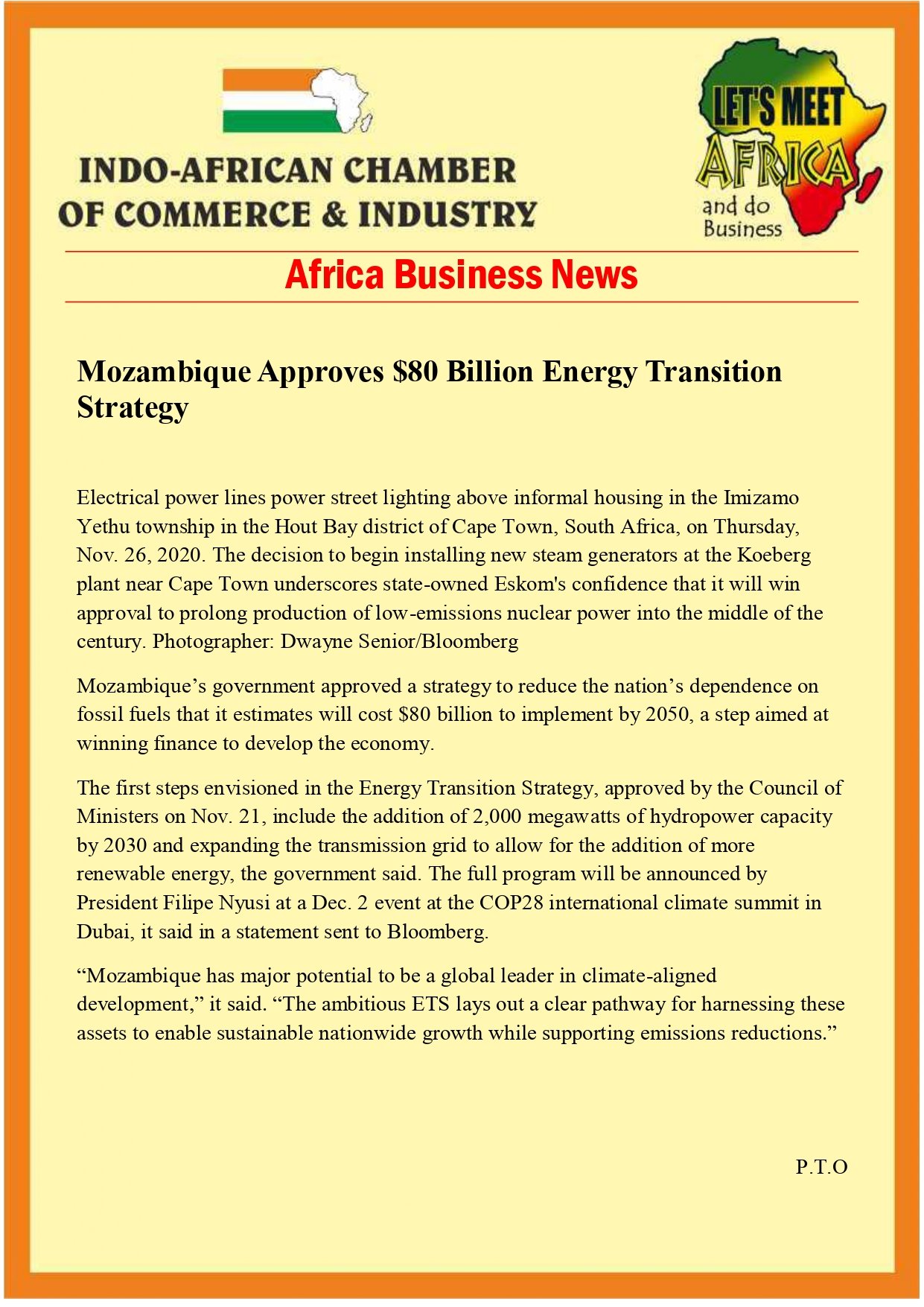
India Offers $100 Million Line of Credit to West African Country of Benin During Prez Kovind's Visit
Kovind, who arrived here on Sunday on the first leg of his three-nation tour, is the first Indian head of state to visit the West African nation.Cotonou (Benin): India offered a USD 100 million line of credit to Benin for its development projects on Monday as President Ram Nath Kovind held wide ranging discussions with his Beninese counterpart Patrice Talon on issues of trade, defence and security cooperation.
Kovind, who arrived here on Sunday on the first leg of his three-nation tour, is the first Indian head of state to visit the West African nation. He was accorded a ceremonial welcome at the Presidential Palace upon his arrival.
"I held wide ranging talks with President Talon. We both committed ourselves to take our relations to a higher level, with special focus on economic partnership," President Kovind said after the delegation-level talks.
The two sides signed four agreements/MoUs on Cultural Exchange, Cooperation in Export Credit and Investment Insurance, e-VBAB network project, visa exemption for Indian diplomatic/official passports. "We offered a fresh line of credit of USD 100 million to finance development projects in Benin," Kovind said.
He said the two sides also discussed defence and security cooperation.
The two countries "stand together in the global fight against terrorism and piracy," he said, adding that India offered further training assistance to Benin to expand its anti-piracy capacity. They also agreed to work together to combat climate change through the International Solar Alliance.
President Kovind said the two sides took stock of the ongoing projects being financed by Indian assistance and hoped that they will be completed soon, especially the project to supply safe drinking water to 103 villages in Benin.
"In the last 10 years, our bilateral trade has risen from USD 350 million to more than USD 800 million. With this, India has become Benin's largest trading partner," he said.
He noted that India's duty free tariff preference scheme has helped Benin's exports grow by over 68 per cent last year to reach USD 376 million. "We agreed that there were immense opportunities to enhance trade and investment ties. India's transformative growth and Benin's natural strengths complement each other," he said.
Both countries further committed to take the development partnership forward through the signing of country agreement for Benin to avail India's tele-education programme - e-Vidyabharati, and tele-medicine initiative - e-Arogyabharati.
Under these programmes, India extended free tele-education courses to 15,000 Beninese students and tele-medicine courses to 1,000 doctors and paramedics in Africa. "My visit has given an opportunity to add further momentum to our special ties. As the world's largest democracy, India has been impressed by the emergence of the Republic of Benin over the past three decades as a shining example of a stable democracy in West Africa," Kovind said.
He also thanked Benin for its support for India's candidature for permanent membership of the UN Security Council. President Kovind said his visit will open a new chapter in the bilateral relations between the two countries.
He will now travel to Porto Novo, the seat of Beninese Parliament, and in a special honour extended to India by Benin, he will address the National Assembly there.
Kovind will also meet the members of the Indian community at a reception hosted in his honour in Cotonou on July 30 before departing for The Gambia. Apart from Benin and The Gambia, he will also visit Guinea, the first visit by an Indian head of state to the three West African countries.
Gambian President Adama Barrow and his Senegalese counterpart, Macky Sall, cut the ribbon this week on a project that was decades in the making, a bridge that links the north and south banks of the Gambia River and ties the neighbors closer together.
"Our wish is that the bridge stands from now on as a symbol of Senegambian unity, friendship and love," the Gambian leader told thousands of people who gathered to witness the inauguration and walked across in celebration.Tiny Gambia pokes like a finger into the side of Senegal, its larger and more prosperous neighbor.
For years, many Senegalese living in the capital, Dakar, and other parts of the north had to drive for hours to skirt around the Gambia or wait in long lines for a ferry to reach the southern region of Casamance.
The 1.9-kilometre Senegambia Bridge is one of West Africa's longest and is expected to have positive impacts on the economy.
The project emerged in the 1970s but failed to materialise due to profound areas of disagreement.
Gambia's first president, Dawda Jawara, was interested in constructing a dam across the river. Longtime President Yahya Jammeh, who stepped down in early 2017, considered the bridge as the least of his priorities.
Fode Seck, executive secretary of the Senegalo-Gambian Secretariat, said the whole West African subregion will benefit from the bridge, describing it as part of the Trans-African Highway project.
The CEO of the Gambia Chamber of Commerce and Industry, Alieu Secka, said the bridge will boost trade between the countries, saying Gambia exported USD 11 million worth of products to Senegal in 2016 while imports totaled USD 81 million.
"The bilateral trade is expected to surge," he told The Associated Press. Funded by the African Development Bank, the bridge is expected to last 100 years.
Fatou Njie, a resident of the nearby community of Farafenni, told the AP that people's prayers have come true.
"We will no more experience long queues of vehicles that used to delay the free movement of people across the river Gambia," she said.
(This story has not been edited by Business Standard staff and is auto-generated from a syndicated feed.)


